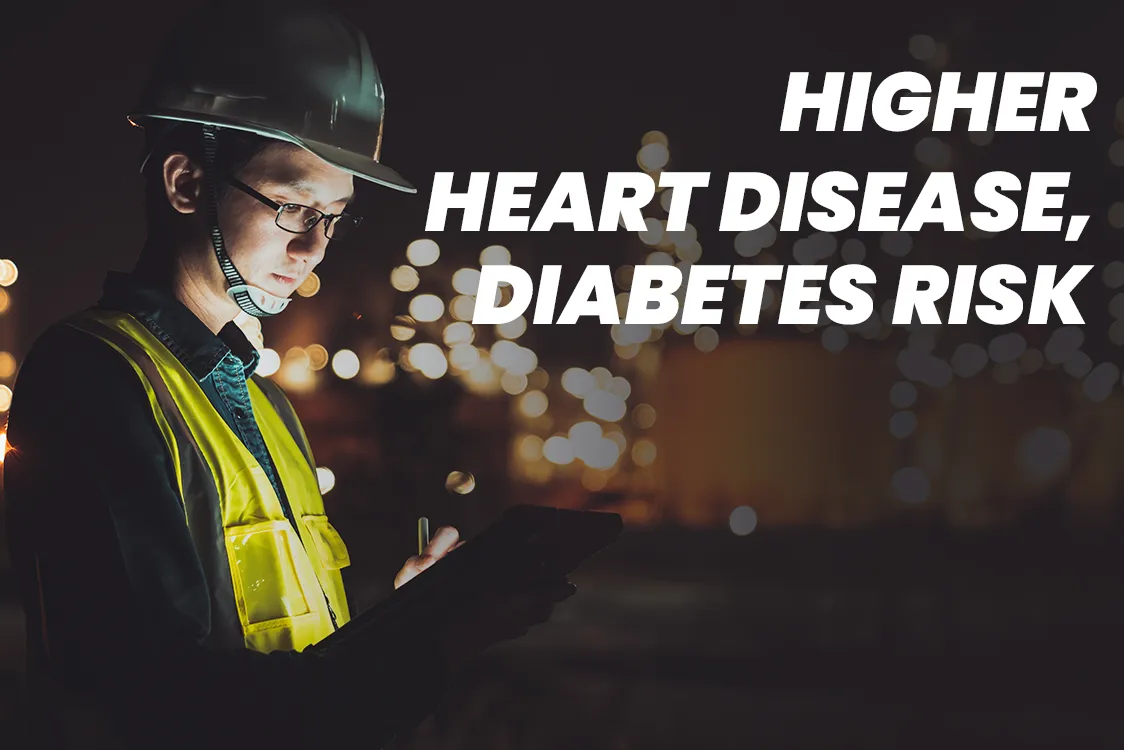According to new research, people with high blood pressure may be more likely to develop diabetes and cardiovascular disease if they frequently work night shifts.
The results, published on Monday in the Journal of the American Heart Association, showed that the higher risk was more pronounced among individuals who also slept too much or too little when they weren’t working.
The study expands on earlier research that linked shift work to an increased risk of cardiovascular disease, Type 2 diabetes, and high blood pressure, also known as hypertension, in otherwise healthy individuals.
The researchers defined cardiometabolic multimorbidity as having high blood pressure in addition to diabetes, coronary heart disease, or stroke. The new study is the first to look into the role of shift workers in the progression from high blood pressure, a single cardiometabolic condition, to cardiometabolic multimorbidity.
A great way to know is to get self tested. If required, a full body health check-up could be availed for the same.
The study’s senior author, Dr Yongping Bai, an associate professor in the department of geriatric medicine at Xiangya Hospital of Central South University in Changsha, China, said that it is imperative to clarify the relationship between shift work and cardiometabolic multimorbidity risks because it is becoming more common, and hypertension is a major risk factor for the condition.
According to Bai, the latest research is combined with earlier studies, “working night shifts can be dangerous to health in both hypertensive and healthy individuals,” according to Bai.
Researchers examined 36,939 participants’ health and employment information from the UK Biobank, a sizable biomedical database of people residing in the United Kingdom. 40 to 69-year-old participants who signed up for the study between 2006 and 2010 ranged in age. On average, they were monitored for close to 12 years.
Working night shifts frequently or always was linked to a 16% increased risk of diabetes, heart disease, or stroke among people with high blood pressure compared to those who worked regular daytime hours. Any work completed outside regular business hours or between 6 p.m. and 7 a.m. was referred to as shift work. According to the study, shift workers make up 20% of the workforce in the US and Europe.
Researchers looked at 17,639 study participants who provided information about their lifetime employment to analyse how the frequency of night shifts affected cardiometabolic health. Working an average of one to ten-night shifts per month over a lifetime increased the risk of developing an additional cardiometabolic condition by 14% compared to people who worked day shifts. The risk was even higher for those who worked more than ten-night shifts per month (19%).
Even when night shift workers received the same seven to eight hours of sleep as day shift workers, the risk of developing additional cardiometabolic conditions was higher. The risk was even more pronounced if they slept for less than seven hours or more than eight hours.
This could lead to mental stress. Opening up about one’s worries and concerns with a Psychologist can help relieve stress.
Girardin Jean-Louis, director of the Center for Translational Sleep and Circadian Sciences and professor of psychiatry and neurology at the University of Miami, stated that it is “really difficult to get good sleep if you work shifts.”
According to Jean-Louis, who was not involved in the new study, alternating between night and day shifts can make it more difficult for the body to adjust and harder to maintain healthy sleeping patterns.
The human body’s circadian rhythms are controlled by an internal clock that uses light and darkness as cues to determine when it should be awake and asleep. For shift workers, that procedure is reversed, Jean-Louis said. “Without comorbid conditions, we can fully train someone to work nights. You don’t want to return to work the day shift once you’ve gotten used to that shift. The issue is that. The shifting keeps happening.”
According to the American Heart Association’s Life’s Essential eight checklist for enhancing and maintaining cardiovascular health, the majority of adults require 7 to 9 hours of sleep per night to promote good heart health. To increase the likelihood of getting enough quality sleep, the Centers for Disease Control and Prevention advises following a regular sleep schedule, sleeping in a room that is dark, quiet, and at a comfortable temperature, removing electronics from the bedroom, avoiding heavy meals, caffeine, and alcohol before bed, and engaging in regular physical activity.
According to Jean-Louis, future studies should examine whether racial, ethnic, and gender differences in the effects of shift work on cardiometabolic risks, particularly for those already at higher risk for the disease, such as Black adults, who have disproportionately high rates of high blood pressure.





